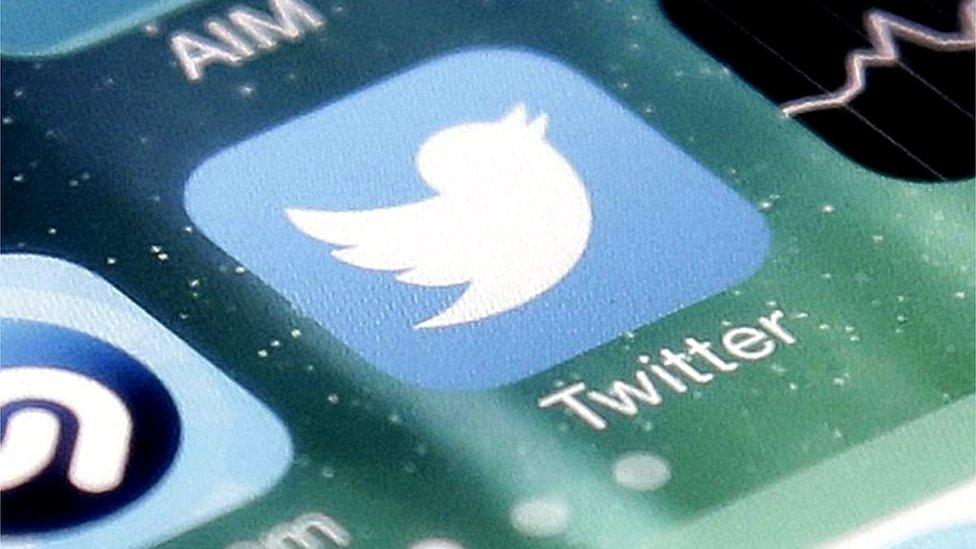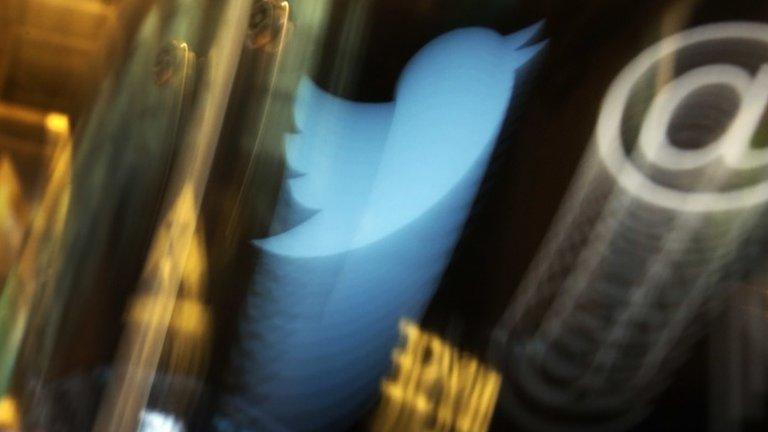Twitter rolls out new anti-abuse tools
- Published
- comments

Twitter boss Jack Dorsey has pledged to tackle abuse on the platform
Twitter has announced more changes intended to limit the amount of abuse on the network.
It comes in the wake of heavy criticism about harassment on its platform and a failure to find a buyer after months of rumours about takeovers.
It has announced three main changes, which will be rolled out in the "coming weeks".
It includes moves to identify people who have been permanently suspended and stop them creating new accounts.
Harassment
In a blogpost, external announcing the changes, Twitter's vice-president of engineering, Ed Ho, said: "Making Twitter a safer place is our primary focus.
"We stand for freedom of expression and people being able to see all sides of any topic.
"That's put in jeopardy when abuse and harassment stifle and silence those voices.
"We won't tolerate it, and we're launching new efforts to stop it."
Abusive
In a tweet last month, chief executive Jack Dorsey promised that it was going to take "a completely new approach to abuse on Twitter, including having a more open and real-time dialogue every step of the way".
The other changes are:
safer search results - removing tweets that contain potentially sensitive content and those from blocked or muted accounts
collapsing potentially abusive or low-quality replies to tweets
Neither of these tools will mean tweets are removed entirely from the platform but users will be able to control whether or not they want to see either in their settings.
In November, Twitter acknowledged a trend towards being "abusive to each other" was growing.
Hateful
In response, it expanded its Mute tool, which enabled people to block certain keywords, phrases and even entire conversations they did not want to see notifications about.
It also said that it was retraining its support teams on its hateful conduct policy and improving internal tools and systems to more effectively deal with hateful speech when it was reported.
In June last year, Twitter updated its block button to make sure that people who used the function could no longer see the tweets from the person they blocked.
Previously, their tweets could still be retweeted by another users into the blocker's timeline.
Toxic
Twitter has had to address the issue of abuse following a lack of interest from potential buyers.
Google, Apple and Disney were all reportedly interested but walked away from any deal.
There are also questions over how the social network will grow, as it struggles to attract a new audience and make money in the long term.
Nick Thomas, an analyst with research company Ovum, said the changes would be welcome news for those who saw the platform as "an increasingly toxic place on which to engage" but asked if it was a case of "too little, too late".
He added that the platform's most high-profile tweeter - President Donald Trump - may be adding to its issues.
"The fact that Twitter is now the preferred communications channel of the most divisive figure in global politics is at best a mixed blessing for the platform," Mr Thomas said.
"The US's tweeter-in-chief certainly generates profile for the platform through his regular updates, but those who oppose him consider that his style and tone have given unwanted validation to the unsavoury trolls whose presence makes the site unattractive to other users and advertisers."
- Published25 May 2016
- Published26 May 2016
